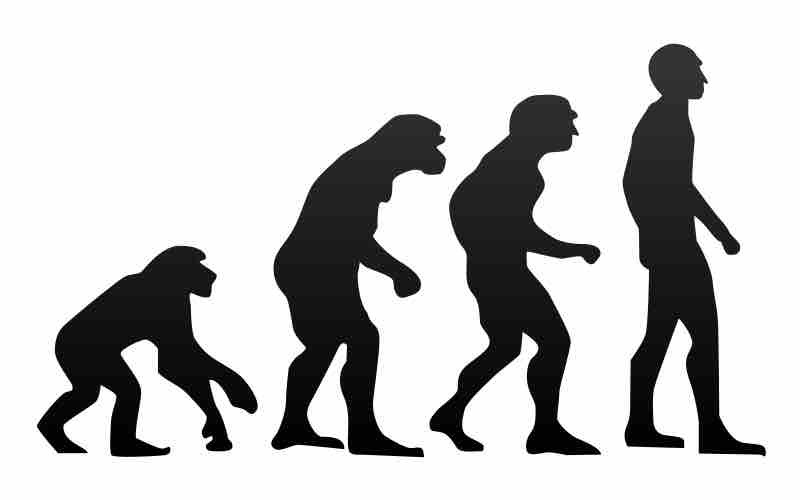The basic idea of evolutionary psychology is that genetic mutations are capable of altering an organism's behavioral traits as well as its physical traits. Like physical traits, these mutations in behavioral traits may help the organism reproduce; this in turn allows the mutations to be passed on to the next generation. In this way, individuals are motivated to engage in behaviors that maximize their genetic fitness.

Evolutionary Psychology
Evolutionary psychology suggests that individuals are motivated to engage in behaviors that maximize their genetic fitness.
Genetic Fitness
All animals, including humans, need to act in ways that will improve their reproductive success. This results in social processes that maximize individuals' genetic fitness, or ability to pass their genes to the next generation. According to evolutionary theory, those who are the most fit are the most likely to survive, and eventually the population evolves in such a way that their traits manifest themselves across the population.
Consider the following example: in a population's gene pool, a genotype exists for an infant that is unattached from its mother—it will crawl away and does not have any "love" or other significant attachment to its mother. Over time, mutations accumulate and another genotype develops that causes infants to become uncomfortable and cry when their mothers leave them. Naturally, the crying infant who signals distress will be more protected from the elements and other predatory environmental forces than the unattached infant. Thus, the "attached" infant has a higher chance of survival. Over many generations, more "attached" infants will survive to mate and pass on their gene for attachment. Thus, a new behavior develops by means of natural selection. This illustrates the basic idea behind evolutionary psychology in human development: the innate behaviors of very young children are pre-programmed in their genotypes and can be understood by studying the environmental forces that surrounded our ancestors.
Evolutionary Perspective on Motivation
From an evolutionary point of view, behaviors are not made consciously: they are instinctual, and based on what is most advantageous in terms of passing one's genes on to the next generation. William James (1842–1910) was an important contributor to early research into motivation, and he is often referred to as the father of psychology in the United States. James theorized that behavior was driven by a number of survival instincts. From a biological perspective, an instinct is a species-specific pattern of behavior that is not learned. There was, however, considerable controversy between James and his contemporaries over the exact definition of instinct. James proposed several dozen special human instincts, but many of his contemporaries created different lists. A mother’s protection of her baby, fondness for sugar, and hunting prey were among the human behaviors proposed as true instincts during James’ era. This view—that human behavior is driven by instincts—received a fair amount of criticism because of the undeniable role of learning in shaping all sorts of human behavior.
Optimization Theory
Optimization theory is related to evolutionary theory, and is concerned with assessing the success of a behavior. It attempts to identify behavioral strategies that offer the highest return under a given set of conditions using a cost/benefit analysis. In this context, success or fitness is judged by considering the number of offspring that the individual performing the behavior would contribute to the next generation. Optimization theory states that individuals would be motivated to adopt strategies that allow them to consume the most energy (e.g., to maximize their food intake) while expending the least amount of energy (e.g., to minimize their exercise output).